I have thought a lot about what I would have done differently now that I have completed the exchange in Kochi, juggling tight deadlines within a demanding program. My first thought was that I should have chosen an easy personal project — something that I was completely familiar with and could turn out for an expecting crowd. The problem with this is that I have been an artist too long to not challenge myself. The point is the process, right? To grow and try to make sense of it all, and be successful in a way that feels like a true accomplishment. It is what I was asking workshop participants to do — to leave the comfort of aesthetically pleasing art behind to address an uncomfortable topic like gender equality and wrestle with it, focusing on exploring this challenge over the desire to make something impressive, finished, or entertaining without concept. If I was asking this of them, then I needed to set the example myself.
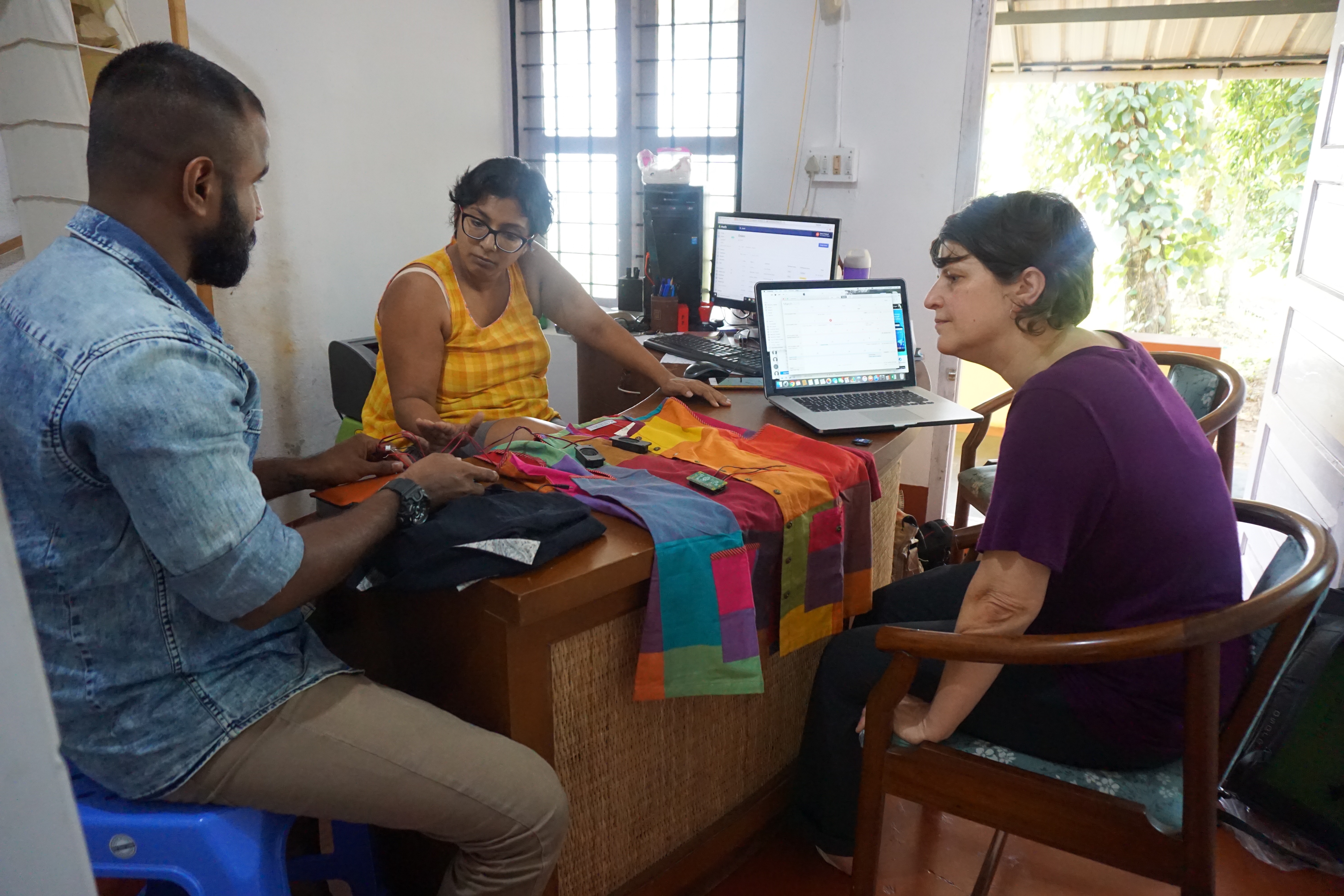
The success of my project was in supporting a locally-owned, female-run textile business during this exchange, and accomplishing a project, initially intended to use pirate radio broadcast methods, in a way that was respectful of Indian law. I also thoroughly enjoyed talking to five generous womxn who were willing to have their stories of struggle and success recorded for this project. It is content that I hope to build upon as I figure out how this idea will evolve.
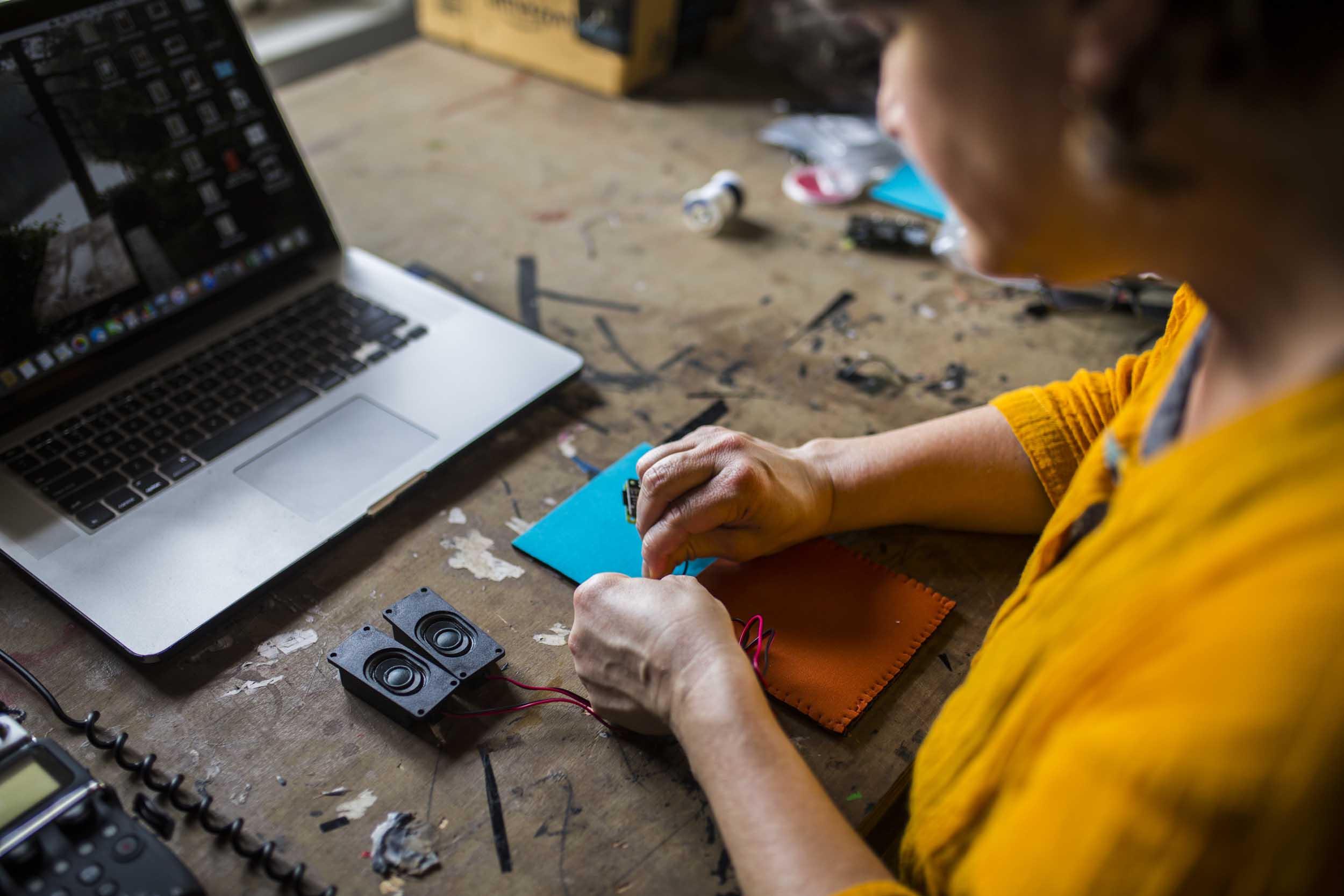
When I think about choosing an easier project, or trying to be less ambitious with the Amplified Voice Workshops, or even being assigned a topic that was less challenging than addressing gender equality, I keep hearing a popular Malayalam saying that is told as a warning to girls: “Whether a thorn falls on a leaf, or a leaf on a thorn, it is the leaf that will suffer.” This saying reminds me of the necessity for all womxn to experience life, freedom, and respect in spite of the obstacles in our global patriarchal society, and I can’t help but to hope that instead of suffering, we can begin to see the leaf as transformed into something new, which will soon ignite a fire.
Pepper House is one of the locations my partner organization, The Kochi Muziris Biennial Foundation, uses for exhibitions, artist talks, and residencies. It's also the home of their art library. I have been spending many days running workshops and ironing out the details of my own project in this beautiful, historic space.
As a creative and progressive organization providing space for local and international viewpoints, I have been fortunate to have deep conversations about gender rights, learn about the methods transgender people navigate this community, and on one special occasion, unsuspectingly walk in on a band practice session of the reunion of a well-known local group who was playing in one of the many places the biennial has developed as artistic space. I have also been told that more Kochi community members attend the biennial each year, and that their tolerance for, and interest in, more challenging forms of art is growing.
Due to the nature of this foundation, “The People’s Biennale,” I have also been surrounded by a 20- to 30-year-old crowd who either work for or are involved in the biennial. As an artist-educator-dreamer, I have aspirations for creating spaces where conceptual and cutting-edge art is accessible to the community and art provides access for people to be empowered, rather than an opportunity or event focused on only one demographic. The Kochi Muziris Biennial has achieved this. I have met more than one young person here who has said they had no interest in art until the biennial changed their viewpoint, and that they are now pursuing careers in art that will take them further than they ever expected.
Association with the program also provides a kind of freedom that allows young people to operate outside some of the cultural expectations in the area. Just as I am able to walk on the streets after dark or wear clothing that shows more skin as a tourist (without someone attempting to admonish me for not acting acceptably), the young people associated with the Bienniale, especially women, are granted more leeway to navigate outside of acceptable cultural norms.
These access points will hold even more resonance in 2018 as the next biennial develops under the curatorial actions of Anita Dube. The word here is that women and transgender artists will hold a prominent place in this next exhibition, an important and progressive move for Kochi, which I can only hope will inspire curators back home.
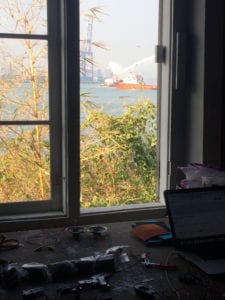
The view out of my studio window looks a little bit like home. Kochi is an extremely cosmopolitan city with a 97% literacy rate. In many ways, it reminds me of my home, Seattle, which also has an extremely high literacy rate for the U.S., and is a shipping port with large dockside gantry crane, a history of leftist politics, and an affinity for plaid (here it is called Madras checks).
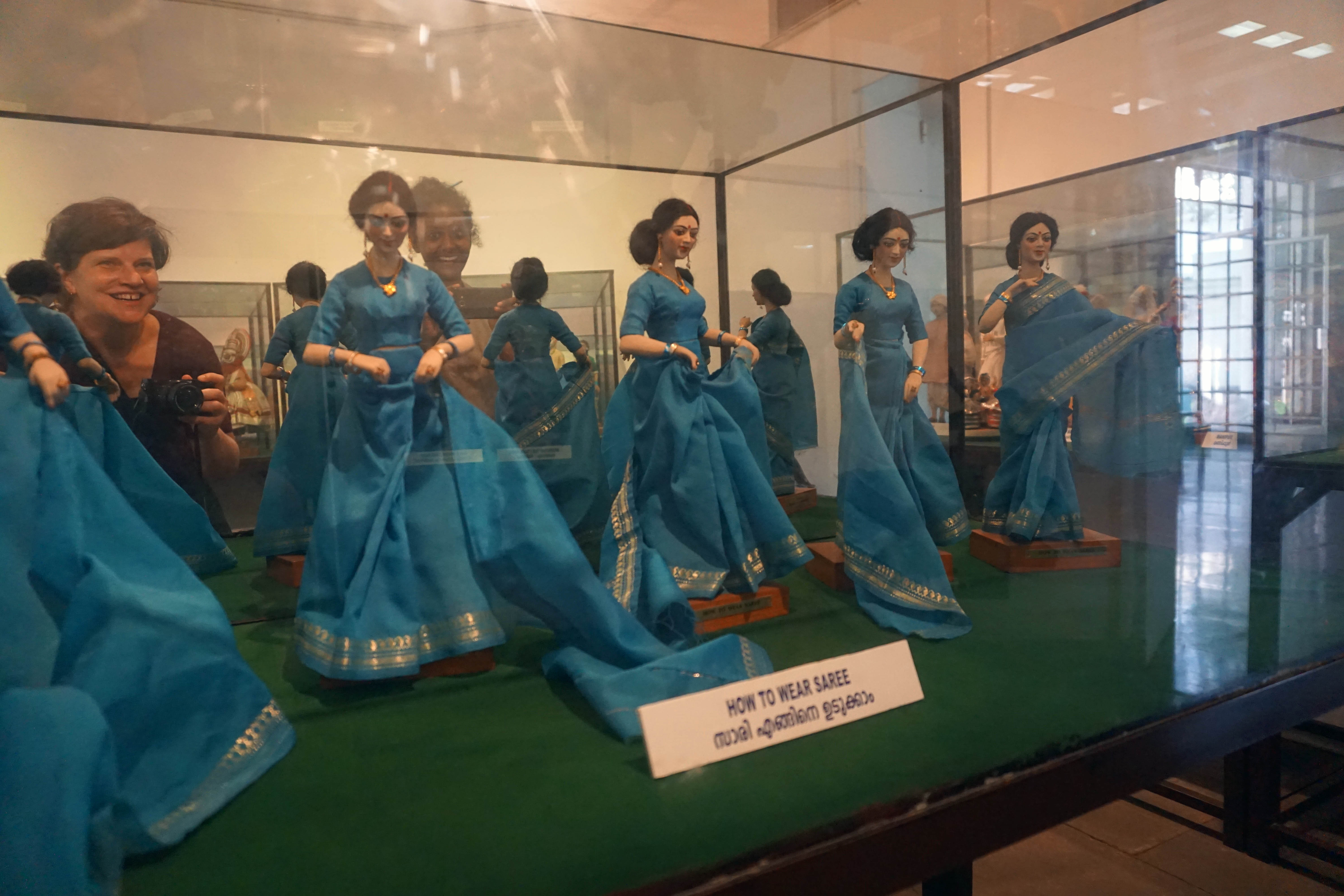
Selfies at the Kerala History Museum with my amazing assistant, Aparna, whose interest in contemporary art was spurred by the biennial.
Teaching is no less a work of art than the creation of artwork itself. For the past ten years my artwork has evolved into platforms and objects that aspire to give people a place to find their voice, express their individual and collective beauty, and learn more about the empowering effects of creativity. I have done this through projects such as collaborative textile-making processes, creating and running a neighborhood Super 8 film festival, and designing radio sculptures for non-traditional communication. Recently, I have been fusing my two primary interests, textile objects and traditions plus communication practices to express ideas of voice, identity, and place.
I am extremely grateful to be able to bring my art practice to Kochi, India and continue exploring communication and empowerment through a partnership with the Kochi Biennale Foundation, addressing the topic of gender equality. Inspired by Gandhi’s khadi (Indian hand-woven cloth) campaign, which “was a result of decades of experimentation with cloth as a means for communication,”[1] I am preparing for a project to embed speakers into textiles exploring micro-amplification to amplify stories from the Kerala region.
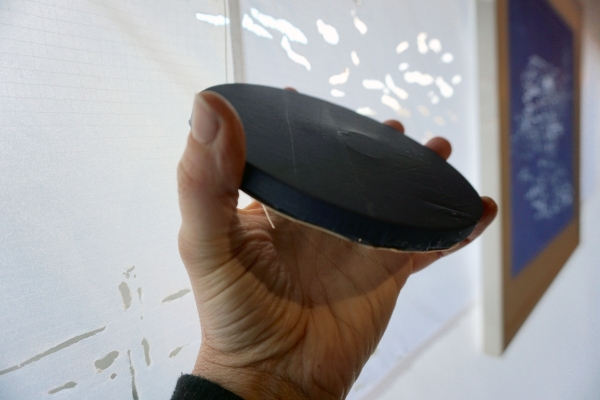
The workshop I am offering will explore amplification, sculpture and sound (including e-textiles), narrowcasting, and podcasting as a method for exploring gender equality, communication, and creativity. Inspiration for this project has come from India’s rising access to radio through mobile phones[2] and Vinod Pavarala and Kanchan K. Malik’s Other Voices: The Struggle for Community Radio in India, which credits radio with the “capacity to consolidate participatory communication into a thread that weaves through the development process and endows it with avenues to strengthen and give voice to all stakeholders.”[3]
I begin this exciting journey in mid-February and look forward to sharing my experiences there.
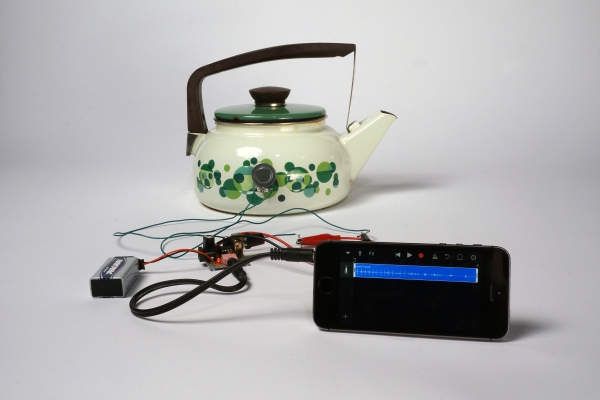
Workshop tutorials will include building speakers and amplifiers, making things “talk” through the use of transducers, audio editing and amplification, and hacking electronics to make what you want. Photo by Laura Wright.